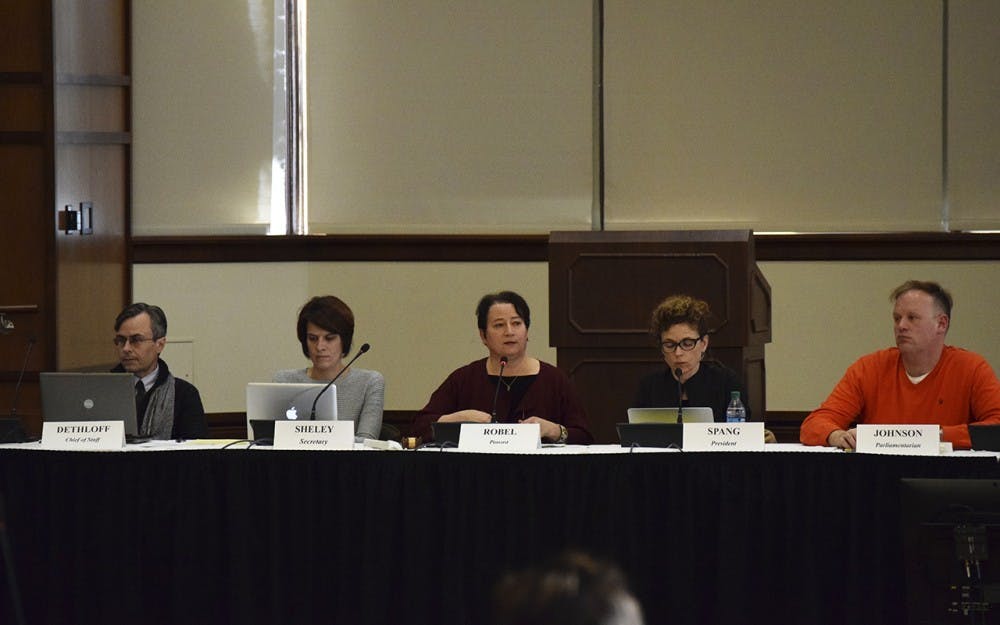The Faculty Misconduct Review Policy was revised at the Bloomington Faculty Council meeting Tuesday afternoon to include full-time, non-tenure track faculty. It also redefined misconduct to include situations that occur off-campus.
Provost Lauren Robel also said during the meeting the council has yet to propose any action regarding undocumented students after recent requests by some to make IU a sanctuary campus.
“I don’t, at this point, think we have a very clear picture of what is going to happen in this case,” Robel said.
Moira Marsh, co-chair of the Faculty Affairs Committee, said the misconduct policy now states evidence for misconduct must be clear and convincing, and any student witnesses attending the hearing must be accompanied by an adviser that does not participate. Also, counsel in hearings is being limited to providing strictly consultation.
“We have included a very definite and exclusive definition of what we mean by misconduct, and that is that they are egregious violations of ethics,” Marsh said.
These violations are actions that go against of the Code of Academic Ethics, an IU-Bloomington academics policy, as stated in the Faculty Misconduct Review Policy draft.
The policy now also includes some forms of misconduct that occur off-campus, Marsh said.
The review process for emergency cases has been shortened. Faculty members may be suspended with pay or reassigned if the misconduct requires immediate action in cases where immediate harm is possible.
However, the vice provost for faculty and academic affairs or the provost must give the faculty member a written notice and the opportunity to meet and discuss the action informally.
Further changes were made to the language of the text so the policy is not misinterpreted, and the final revision was passed.
“This has been going on for a very long time, and it has taken a lot of thought and care and consultation in people all across the campus,” Robel said.
In 2014, the FAC formed a subcommittee to examine review of tenured faculty. This included the regulation surrounding faculty misconduct. After drafts of policy were written, they were divided into two different policies — misconduct and incompetence.
In 2015, a small task force was formed to separate these factors. Following much discussion on feedback, the group decided to focus on passing a clear misconduct policy.
“This is one of those situations where I wish we had a really good way to document for the future the incredible amount of thought that has gone into the work of this tiny and interchanging committee over the last couple of years,” Robel said.
Rights on campus were also brought up by American studies associate professor Maisha Wester after various protests and hate crimes on campuses across the country in response to the election last week.
“The right to free speech certainly does not include the right to threats, harassments, insults or the vandalism of property,” Wester said.
Robel responded simply by saying she hoped there was no question whatsoever about the issue.
In other business, P. David Polly, the chair of the Faculty Board of Review, gave the 2015-16 report on the Faculty Board of Review. Marsh also proposed a resolution on IU-Purdue University Fort Wayne program restructuring. He stated the council’s regret and concern regarding the restructuring and elimination of some degrees against principles of shared governance.




